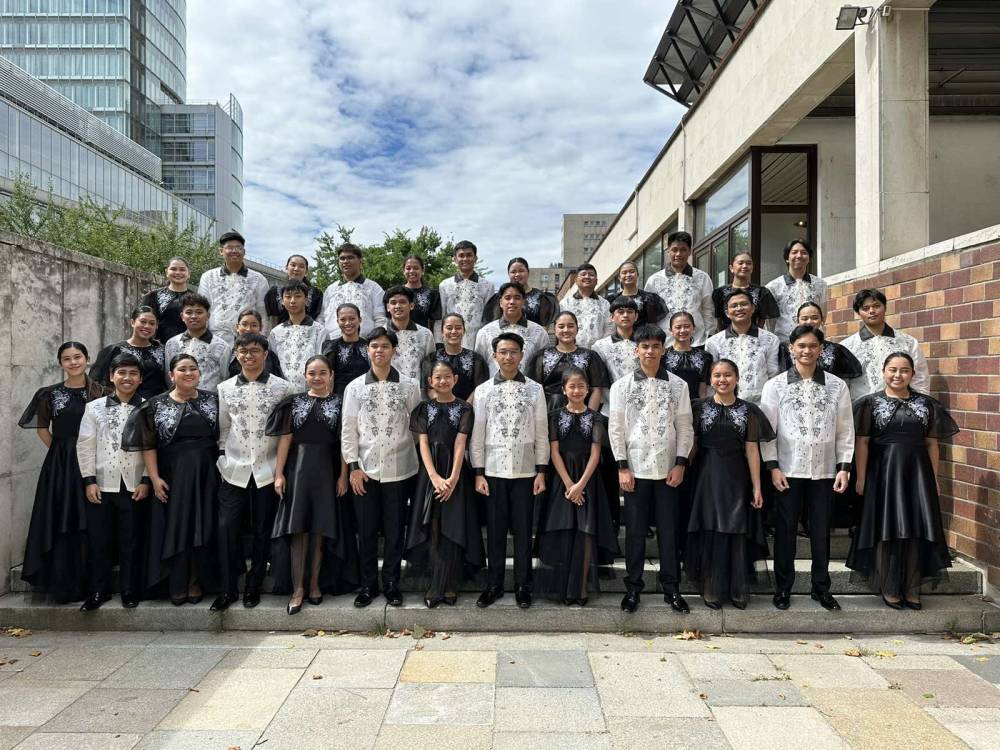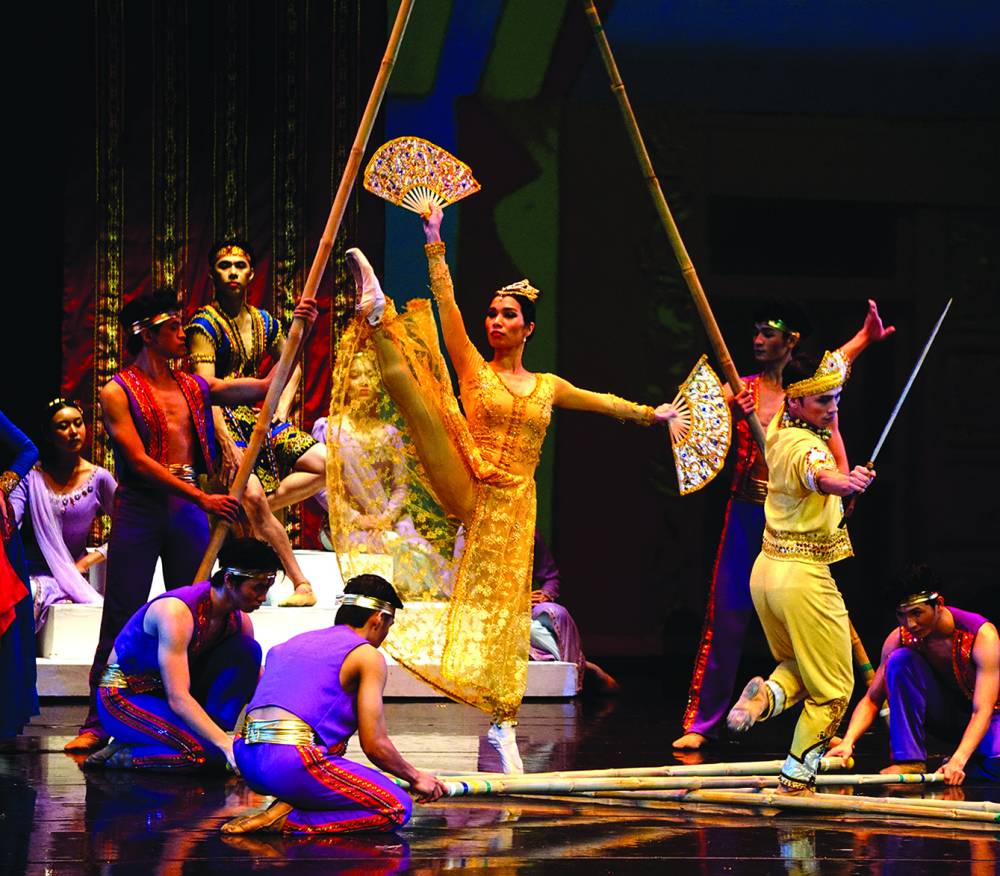
Giacomo Puccini’s two one-act operas, “Suor Angelica” and “Gianni Schicchi,” composed in 1918, recently took center stage at Hyundai Hall, Areté, Ateneo de Manila University.
The presentation was part of the Manila Symphony Orchestra’s (MSO) concert season billed “Puccini at 100,” this year being the centenary of Puccini’s death anniversary.
The concert, said Marianne Hontiveros in her opening remarks, was a “celebration of the power of music and the everlasting legacy of Giacomo Puccini.” It was dedicated to the memory of Zenaida “Nedy” Tantoco, an avid patroness of the arts, who passed away recently.
Marco Clemente, Italy’s ambassador to the Philippines, led some members of the diplomatic corps that attended the concert. In his message in the program, he said, “Italy is honored and privileged” to extend support to MSO’s commemoration of Puccini, one of Italy’s celebrated composers of operas.
Conjure the larger part of the stage on the left being occupied by the orchestra, there being no orchestra pit where the musicians could have been properly seated. Conductor Marlon Chen was at home wielding the baton for operatic productions.
First to be performed was “Suor Angelica,” purportedly Puccini’s favorite. Rachelle Gerodias, one of the country’s leading sopranos, essayed the title role. The opera counted on an all-female cast, except for the boy, Theodore Franco, Suor Angelica’s son who appeared briefly at the end.

Vocal confrontation
It was the confrontation of Suor Angelica and her aunt, La Zia Principessa, eloquently portrayed by soprano Nerissa de Juan, that marked the interesting part of the story. Here, De Juan intoned her suave, ringing voice whose low notes revealed an earthy sheen that betrayed her soprano texture. She came for the signature of Suor Angelica, for a will in favor of her sister who was about to be married. The nun was reluctant to sign it as her inheritance was meant for her son whom she had not seen since she entered the convent some seven years ago. The princess was forced to reveal the bitter truth that the said son died two years ago, forcing Angelica to sign the testament.
Then came the aria, “Senza Mamma,” that Suor Angelica movingly sang, expressing the grief of a mother who was not present when her son died. Here, Gerodias was in supreme command of her vocal instrument. Then came the singing of the omitted aria, “Amici fiori.” This had been deleted after the opera had been staged for some time despite the composer’s pleas for its retention. Off stage, Gerodias said it was through the efforts of Clemente that this original omitted score was secured from the Puccini Foundation and made available for the Manila production.
Suor Angelica drank the poison she concocted from the flowers she gathered from the garden. Despite her unpardonable act of committing a grievous sin, a celestial vision was revealed, her son appearing and reuniting with her amid the moving, heavenly singing of a chorus from the entire cast that ended the opera.
Death as binding theme
Death is the binding theme that ties up the triptych. But if death was used as a sublime means in “Suor Angelica” for filial and spiritual love, in “Gianni Schicchi,” it was used for a mundane purpose that unfolded into a comical situation.
Buoso Donati, a rich Florentine, died with his assets all given through a will to a monastery. Finding this out, his relatives wanted to find a way of disregarding the will so they could inherit his assets. Rinuccio, a relative, had suggested to get the expertise of Gianni Schicchi, his future father-in-law, whose daughter, Lauretta, his betrothed, had no dowry to give for their union. The dead man’s cousin, Zita, essayed well by Margarita Rocco, objected, hurling insults at Schicchi who wanted to leave but was persuaded by Lauretta, who rendered the immortal aria essayed by Bianca Camille Lopez Aguila, “O Mio Babbino Caro (Oh My Dear Papa).” The delivery lacked the luster of a bel canto aria-rendition, but rather sported the sheen of a ditty in a musical! This was understood, as the opera is a comic opera.
Byeong-in Park essayed the role of Schicchi brilliantly. His acting was so natural and brought in the comical touch. His singing of the aria “Si Corre del Nataio (Run to the Notary)” and impersonation of the dying Buoso dictating a will was rib-tickling.
Tenor Nomher Narito Nival vocally cut a noticeable presence with his dynamic singing. His tenor was palpably rich and focused, and brilliantly projected.
In keeping with the wit and humor director Jaime Del Mundo breathed into the opera, the supertitle declared in the end, “If you were entertained you may applaud now”—to the delight of the audience who did applaud thunderously.
Kudos to this witty director who successfully managed to mount these contrasting one-act opera gems. What could have been a simple staging sans costumes, lights and minimalist sets became a modest but realistic presentation that was ardently appreciated. Bravi, indeed! —CONTRIBUTED INQ













































